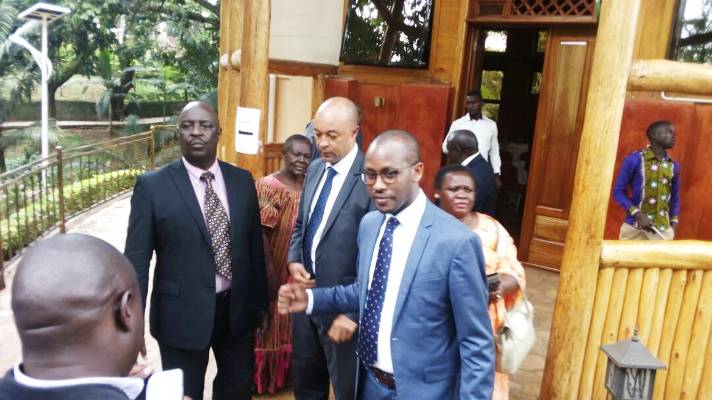Local suppliers will access cheaper loans from banks to enable them to compete for lucrative jobs in the oil and gas sector. The affordable credit is being pushed by the Energy Ministry as part of the efforts to fulfill the local content requirements.
The Head of the National Content in the Directorate of Petroleum, Brian Ochaki Kabalega says there are plans to establish a local content development fund from which local suppliers can access cheaper credit.
Local content” generally refers to the use of domestic suppliers, employment of nationals, and transfer of technology, skills, and know-how from multinationals to domestic suppliers.
It is emerging that while some of the jobs in the oil and gas sector have been ring-fenced to Ugandans, many firms cannot fulfill their obligations because of a lack of cheaper credit.
According to Ochaki, money from the local content development fund will be channeled through local banks to oil and gas suppliers.
“The sector is capital intensive so a lot of our local players struggle with the issue of financing. So we propose to have a 1% surcharge on all tier-one contracts. And that money will go into a bank. So the money will be managed by the bank or any financial institutions.” said Ochaki
Some local suppliers have complained about the high-interest rates charged by commercial banks. They say the high-interest rates and the strict requirements have made local financing to the oil and gas sector inaccessible.
When indigenous suppliers win a contract, they are required to provide a performance guarantee, advance payment guarantee, and other forms guarantees before they are given ago-ahead. Those guarantees are normally given by banks.
In some incidents, the main contractors require assets like vehicles among others. Those requirements and lack of credit have been identified as a major hindrance to indigenous companies from supplying the capital-intensive oil and gas sector.
Stanbic Bank’s executive Head of Banking and Non-Bank Financial Institutions, James Karama says Stanbic has provided such guarantees to enable local suppliers to execute the contracts.
“In some cases they want assets to run the operations, pickups, yellow metal. We also provide these through our vehicle asset finance. Then in some instances, they want to import machines and they want to open letters of credit. We also provide that” he said.
“So where you hear the complaints, is probably when the companies track record, its financial performance, the balance sheet, the capital in the business is not well-aligned with the exposure that they want to take on” added Karama.
The announcement of the Final Investment Decision (FID) by the Joint Venture Partners on Lake Albert Development projects and the East African Crude Oil Pipeline opens up the sector for lucrative contracts.
One major fear is that some local suppliers may remain spectators as construction of the facilities takeoff. Financing by banks would be one of securing those deals.
Karama encourages would be for local suppliers to pool resources through joint ventures and partnerships. “So look for a partner who takes the lead or you maintain the lead depending on the type of services. There are some services that are ring-fenced for Ugandan companies. And there, Ugandans are encouraged to take the lead”
Karama says that with joint ventures, Ugandan companies will be able to cover gasp in terms of financing technical abilities and experience in delivering the contracts.
Recently the Executive Director of the Petroleum Authority of Uganda (PAU), Earnest Rubondo revealed that oil companies submitted contracts worth over US$ 6 billion for over 40 work packages for the Tilenga, Kingfisher, and East African Crude Oil Pipeline (EACOP) Projects.
“You will note that some of the companies, which have been awarded these Tier one contracts include some of the biggest and well-established engineering companies in the world. They also have significant capital bases. This is an important achievement, as these Tier one contractors, with large market capitalization, are expected to set up base in the country”, said Rubondo.
He estimated that 40% of the USD15-20 billion to be invested during the development phase will be retained through national content.
According to Rubondo, the definition of participation of Ugandans in the sector has been subdivided into national participation as well as community participation.
“A lot of work has been done in this area and the first thing is information. The oil companies are required to hold stakeholder workshops where they inform all the players. About what activities are coming, what volume of good that they require. And they do that before they advertise” revealed Rubondo
He agrees that one of the challenges that Ugandans have is the aspect of finance.
–URN





